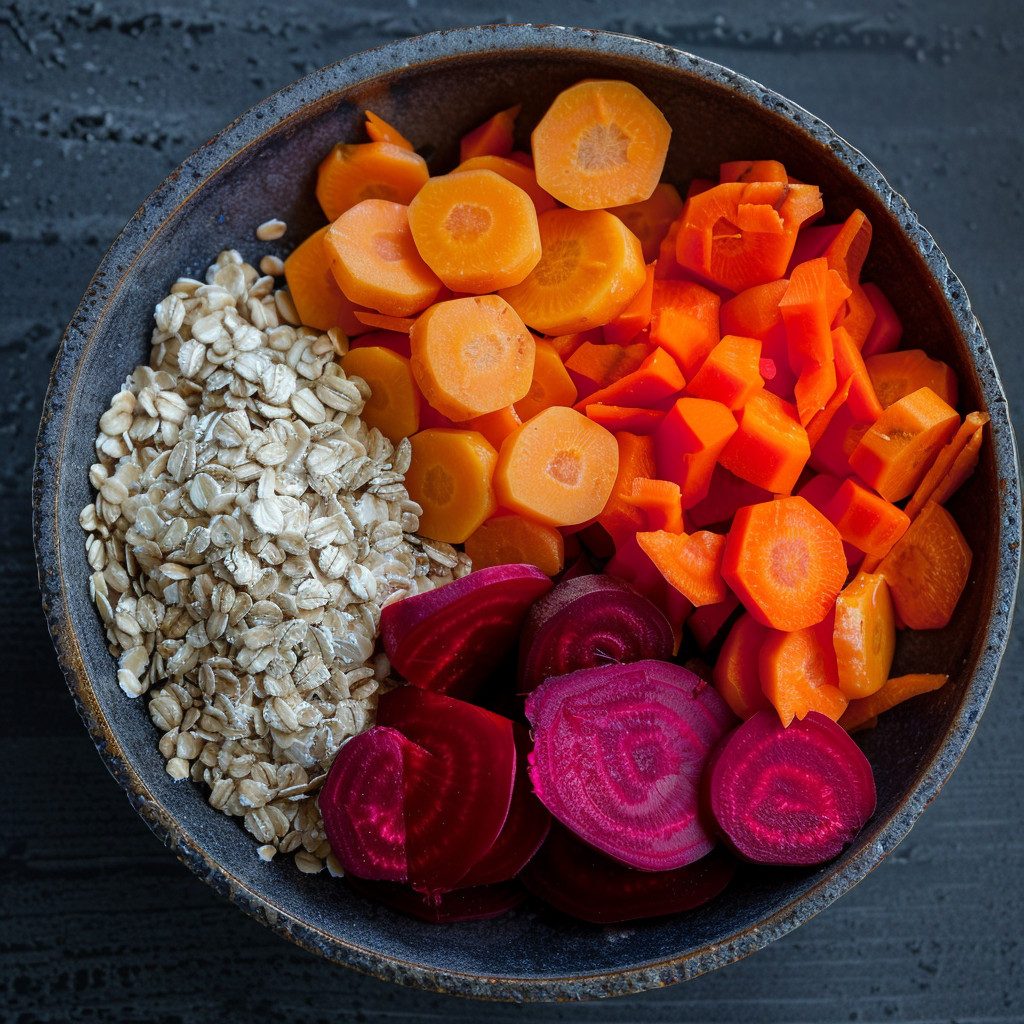
Breastfeeding is a beautiful and powerful journey—one that connects mother and baby on a deeply primal level. But as rewarding as it can be, many mothers encounter challenges, especially when it comes to milk supply.
If you’ve ever worried about whether you’re producing enough milk, you’re not alone. The good news? Nature provides an abundance of nourishing foods and herbs that may support lactation. This is where the lactogenic diet comes in—a gentle, food-based approach to help increase and maintain a healthy milk supply.
What Is a Lactogenic Diet?
A lactogenic diet refers to the inclusion of specific foods and herbs known to support lactation—the production and secretion of breast milk. These are often called galactagogues, from the Greek word galacta, meaning milk.
Unlike medications or supplements, a lactogenic diet focuses on natural, whole-food solutions that not only encourage milk production but also nourish the mother’s postpartum body.
How Does It Work?
The foods and herbs in a lactogenic diet are thought to work through several mechanisms:
- Hormonal Support: Some galactagogues help balance prolactin and oxytocin, the hormones responsible for milk production and let-down.
- Blood Sugar Stabilization: Stable blood sugar supports hormonal regulation and energy levels.
- Anti-inflammatory Benefits: Postpartum inflammation can interfere with lactation. Anti-inflammatory foods help soothe the body.
- Nutrient Replenishment: Pregnancy and birth deplete your nutrient stores. A lactogenic diet replenishes essential vitamins and minerals.
Top Lactogenic Foods
These everyday foods are often easy to incorporate into meals and are safe for regular consumption.
1. Oats
- Rich in iron and beta-glucans, which may support prolactin levels.
- Helps stabilize blood sugar and promotes digestive health.
Tip: Start your day with warm oatmeal topped with flaxseed, almonds, and a dash of cinnamon.
2. Barley
- Contains beta-glucan, a fiber that may help raise prolactin.
- Often found in soups or brewed as barley water.
3. Fenugreek Seeds
- One of the most studied galactagogues.
- Contains phytoestrogens that may stimulate milk ducts.
Caution: Some mothers report gastrointestinal discomfort; always start small and monitor baby’s reaction.
4. Fennel
- Contains plant estrogens and is used traditionally to support lactation.
- Can be consumed as a tea or cooked with vegetables.
5. Dark Leafy Greens (Spinach, Kale, Moringa)
- Packed with iron, calcium, and phytoestrogens.
- Moringa (malunggay), in particular, has strong evidence as a galactagogue.
6. Nuts and Seeds (especially almonds and sesame)
- High in protein and healthy fats that support hormonal balance.
- Sesame seeds are rich in calcium—a critical mineral for milk production.
7. Garlic
- Traditional cultures have long believed garlic boosts milk production.
- May also improve the taste of breast milk, encouraging baby to nurse more often.
8. Carrots and Beets
- High in beta-carotene, a nutrient often depleted during lactation.
- Support liver detox and hormonal balance.
Powerful Lactogenic Herbs
Herbs can be potent allies, but should be used mindfully. Always consult your healthcare provider before introducing new herbs, especially if you’re nursing a sensitive baby.
🌿 Blessed Thistle
- Often used alongside fenugreek.
- Stimulates prolactin and aids digestion.
🌿 Shatavari (Asparagus Racemosus)
- A revered Ayurvedic herb for women’s reproductive health.
- Helps balance hormones and promote milk flow.
🌿 Goat’s Rue
- Can increase breast tissue and milk supply.
- Often found in tinctures or capsules.
🌿 Milk Thistle
- Supports liver health, which is crucial for hormonal regulation.
- May increase milk production when combined with other herbs.
Additional Tips for Boosting Milk Supply Naturally
While diet plays a central role, a holistic approach is best:
- Nurse frequently and on demand – milk supply works on a supply-and-demand basis.
- Stay hydrated – aim for 8–12 cups of fluids per day, including water, broths, or lactation teas.
- Prioritize rest – easier said than done, but rest supports hormone regulation.
- Reduce stress – oxytocin, the “let-down” hormone, is sensitive to stress.
Foods to Watch Out For
Certain foods may decrease milk supply in some individuals. These include:
- Peppermint and sage (especially in large amounts)
- Parsley (in high doses)
- Cabbage leaves (often used to reduce engorgement)
These foods are not dangerous in moderation but should be consumed with awareness.
Final Thoughts: Trust Your Body, Nourish with Intention
Motherhood comes with enough pressure—you don’t need to follow a strict or overwhelming diet to support your milk supply. Instead, think of the lactogenic diet as a gentle guide, filled with nourishing, whole foods that care for you as much as you care for your baby.
Every mother’s body is different. Some respond quickly to dietary changes, while others may need more time or additional support. Be patient, trust the process, and know that you are doing an incredible job.
Recommended Resources:
- The Nursing Mother’s Herbal by Sheila Humphrey
- Mother Food by Hilary Jacobson
- La Leche League International – https://llli.org

